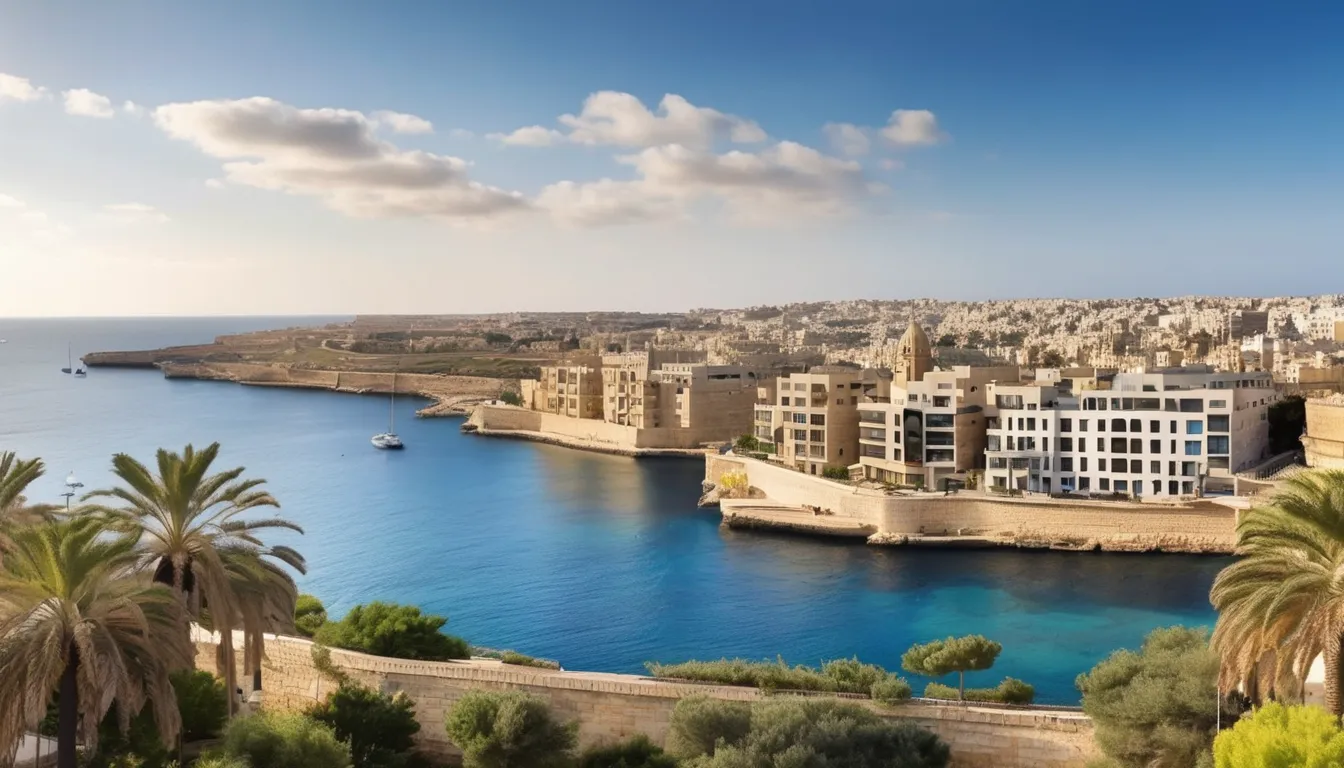When you’re considering investing in Malta properties, it’s crucial to grasp the nuances of taxes and legalities involved. You’ll encounter a property transfer tax of 5%, with certain exemptions for first-time buyers, and navigating annual immovable property tax can be tricky depending on your chosen location. As a non-resident, you’ll need a Tax Identification Number and a notary public to facilitate your transaction. But understanding these basics is just the start; there are common pitfalls that can catch even seasoned investors off guard. So, what else should you be aware of to safeguard your investment?
Overview of Malta’s Property Market
Malta’s property market has become a hotspot for both local and international investors seeking attractive opportunities. You’ll find a diverse array of properties, from charming historic homes in Valletta to luxurious seaside villas in St. Julian’s. The demand for real estate has surged, driven by Malta’s strategic location, favorable climate, and growing economy.
As you explore options, consider that Malta offers various property types, catering to different tastes and budgets. Whether you’re looking for a residential property, commercial space, or a rental investment, the market is vibrant and full of potential.
The Maltese government has also introduced incentives to attract foreign buyers, such as advantageous residency programs.
When investing, it’s essential to understand the current market trends and property values. Prices have generally been on the rise, but it’s crucial to conduct thorough research to identify the best opportunities. Networking with local real estate agents can provide valuable insights and help you navigate the landscape.
Ultimately, investing in Malta properties to let in Malta can be rewarding, but like any investment, it requires careful consideration and planning. Keep an eye on the market as you make your decisions.
Types of Property Taxes
When considering investments in Maltese properties, it’s important to understand the various property taxes that can impact your overall costs.
The primary tax you’ll encounter is the property transfer tax, which applies when you purchase real estate. This tax is generally set at 5% of the property’s value, but certain exemptions may apply, especially for first-time buyers.
Another key tax to be aware of is the annual property tax, known as the immovable property tax. This is a modest tax ranging from 0.1% to 0.5% of the property’s value, depending on its location and type.
If you plan to rent out your property, you’ll also face income tax on rental income, which can be calculated under various regimes.
If you make renovations or improvements, be prepared for the potential of a capital gains tax when selling the property. This tax can also be influenced by how long you’ve held the property.
It’s vital to factor these taxes into your financial planning, as they can significantly affect your investment’s profitability. Understanding these taxes will help you navigate Malta’s property landscape more effectively.
Legal Requirements for Investors
Understanding the legal requirements for investing in Maltese properties is crucial for a smooth transaction. Before diving into the property market, you need to familiarize yourself with some key legal aspects to ensure compliance and safeguard your investment.
Here are three important legal requirements you should know:
- Obtain a Tax Identification Number (TIN): As a non-resident investor, you’ll need a TIN for tax purposes. It’s essential for any financial transactions you’ll undertake in Malta.
- Engage a Notary: In Malta, it’s mandatory to work with a notary public for property transactions. They’ll handle the drafting of the deed of sale and ensure that all legal requirements are met.
- Conduct Due Diligence: Before finalizing your purchase, conduct thorough due diligence. This includes checking property titles, ownership history, and any potential encumbrances.
A legal expert can help you navigate this process.
Residency and Citizenship Options
For those looking to invest in Malta, exploring residency and citizenship options can significantly enhance your experience and benefits. Malta offers several pathways for you to gain residency or citizenship, especially if you’re investing in property.
One popular route is the Malta Permanent Residence Program (MPRP), which allows you and your family to live in Malta indefinitely. By investing a minimum of €300,000 in property in the South of Malta or €350,000 in the rest of the country, you can secure this residency, along with a government contribution and property rental requirements.
If you’re aiming for citizenship, the Malta Citizenship by Naturalization for Exceptional Services by Direct Investment program could be your answer. This option requires a significant investment, including a property purchase, and entails a minimum residency period of 12 months before applying for citizenship.
Both options not only provide you with a residence in a beautiful Mediterranean country but also open doors to the EU market. By understanding these options, you can make informed decisions that align with your investment goals and lifestyle aspirations in Malta.
Common Pitfalls to Avoid
Navigating the Malta property market can be rewarding, but avoiding common pitfalls is crucial for a successful investment.
Many investors overlook key factors that can lead to financial loss or legal issues. Here are three common mistakes you should steer clear of:
1. Ignoring Due Diligence: Always conduct thorough research before making a purchase. This includes checking the property’s title, zoning regulations, and any outstanding debts.
Skipping this step could result in costly surprises down the line.
2. Underestimating Costs: While you may focus on the property’s price, don’t forget about additional expenses like taxes, notary fees, and maintenance costs.
Budget for these to avoid financial strain after your purchase.
3. Neglecting Professional Help: Trying to navigate the legal and tax implications on your own can be overwhelming.
Engage local real estate agents and legal advisors who understand Malta’s property laws. Their expertise can save you time and money in the long run.
Conclusion
In conclusion, investing in Malta’s property market can be rewarding, but it’s crucial to understand the taxes and legal requirements involved. Make sure you familiarize yourself with property transfer tax, obtain your Tax Identification Number, and engage a notary public. Don’t forget to conduct thorough due diligence on property titles and seek legal advice to steer clear of potential pitfalls. With the right knowledge and preparation, you can navigate this market successfully and make a sound investment.




